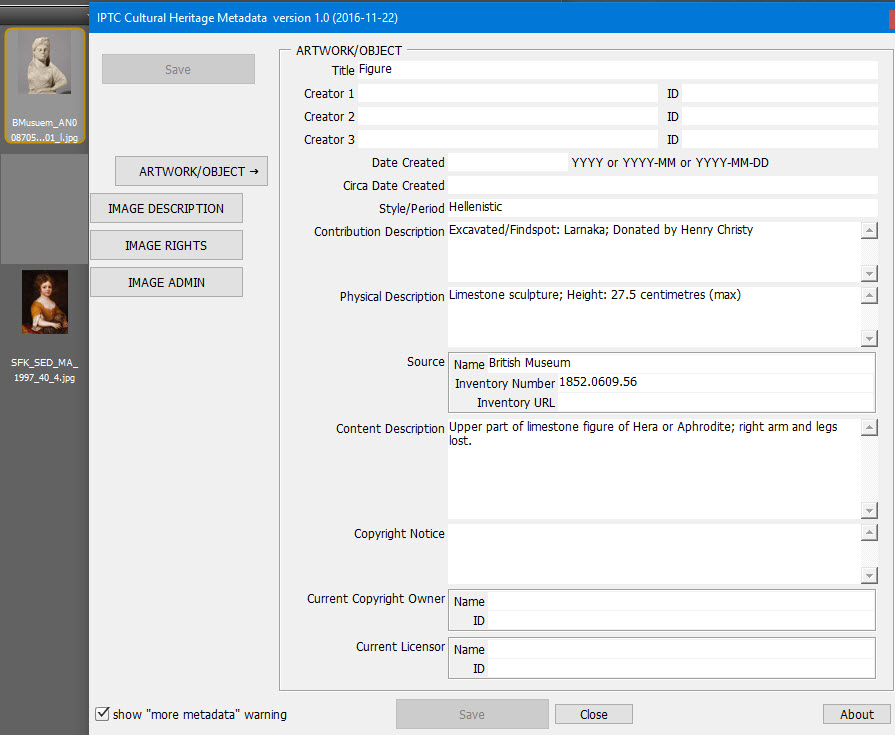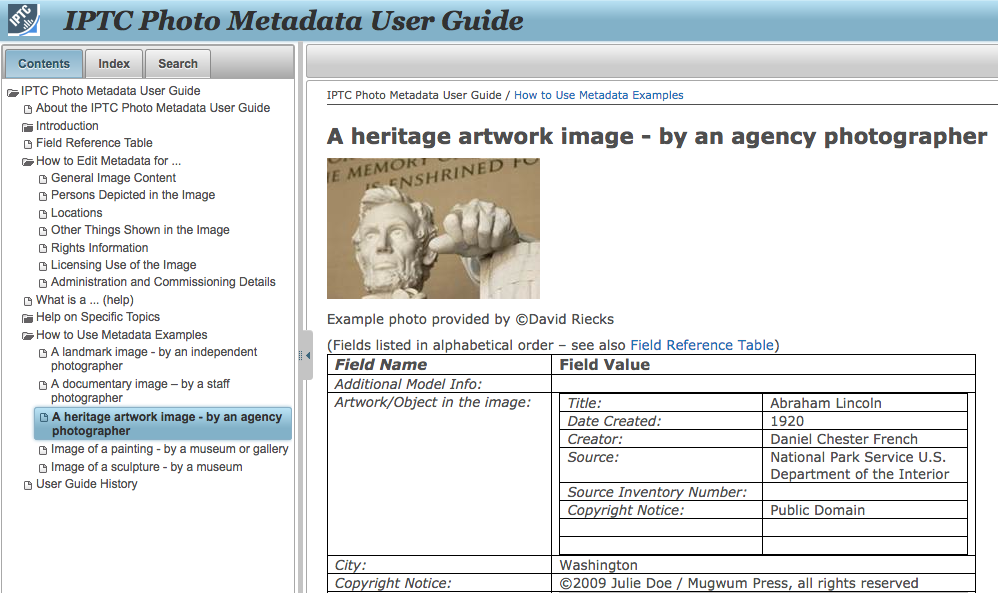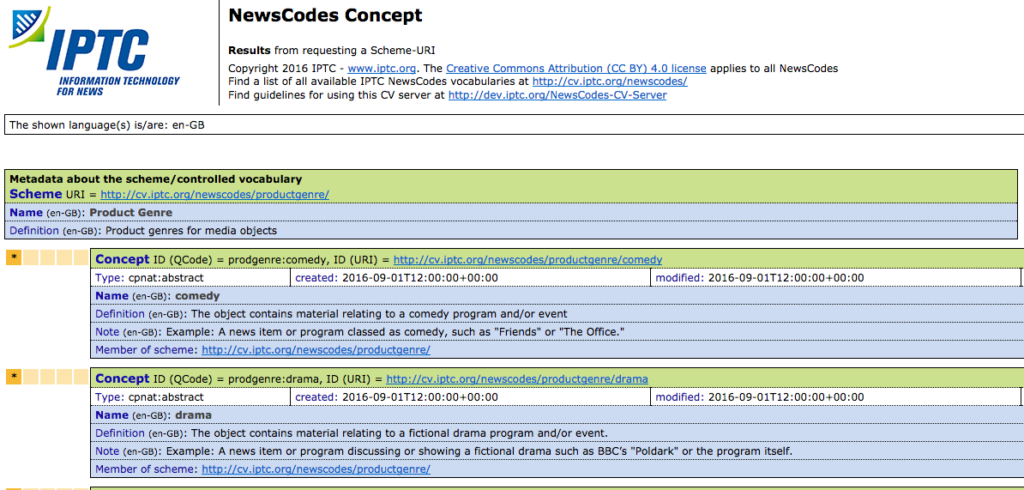Categories
Archives
IPTC’s Board of directors and Michael Steidl jointly announce that Michael will retire from employed work in mid-2018 and he will step down as IPTC’s Managing Director by then.
The Board has already started to make plans for selecting a new IPTC Managing Director and will provide more details in a separate communication.
Stuart Myles
Chairman of the IPTC Board
Being IPTC’s Managing Director for 15 years is a great experience and I’m happy about having been involved in the development and roll-out of 9 new standards, the new Media Topic taxonomy and other vocabularies; further in setting up new formats of the face -to-face meetings and in the creation of new types of meetings. Being in contact with our membership is also part of the bright side of my IPTC life and I enjoyed spreading the word about IPTC and its work among people knowing only little or nothing about our organisation. It was great to welcome 74 new members in this period.
Unfortunately, even such a great period of life started to apply burden on me, so I’ve decided to retire from employed work next summer. Please look forward to what the future will bring.
Michael Steidl
Managing Director of IPTC
IPTC named Bill Kasdorf, longtime publishing executive and VP and Principal Consultant at Apex Content and Media Solutions, as its new Public Relations Chairperson.
IPTC is a consortium of news agencies, publishers and industry vendors that develops and publishes technical specifications and standards to promote the easy, accurate and inexpensive sharing of news and information in all media. Kasdorf’s main goals as Marketing and Public Relations Chairperson are to increase and strengthen the membership of IPTC, and to extend awareness of IPTC’s work to other sectors of publishing beyond news that would benefit from IPTC’s work.
“Although the technical standards developed by IPTC are rooted in the news media sector, the work of IPTC is incredibly important and useful to all areas of publishing and media, as well as related fields such as library science and the cultural heritage sector,” Kasdorf said.
Kasdorf’s experience gives him a broad perspective across the major sectors of the publishing ecosystem – trade books, educational publishing, scholarly and scientific books and journals, magazines, and news. General editor of The Columbia Guide to Digital Publishing, he is active in many professional and standards organizations. He serves on the Steering Committee of the W3C Publishing Business Group and is a member of the W3C Publishing Working Group; he chairs the Content Structure Committee of the Book Industry Study Group; and he is active in the Society for Scholarly Publishing, of which he is a Past President. He serves on the editorial boards of Learned Publishing and the Journal of Electronic Publishing.
In his consulting practice, Kasdorf has served clients globally, including large international publishers such as Pearson, Wolters Kluwer, and Kaplan; scholarly presses such as Harvard, MIT, and Cambridge; aggregators such as VitalSource; and global organizations such as the World Bank, the British Library, and the European Union.
“The PR Chairperson should combine ideas from our membership with needs from up-to-date marketing strategies and Bill will do this in an excellent way” said Michael Steidl, Managing Director of IPTC.
“IPTC is at the forefront of the publishing ecosystem in the development and implementation of machine processable rights expressions, as well as photo and video metadata,” Kasdorf said. “We live in a multimedia world, and IPTC is providing essential technologies for making that world work.”
After 12 years of collaborative work on establishing and implementing photo metadata standards, IPTC, the global technical standards body of the news media and related industries, announced Adobe Systems Incorporated is joining as a Voting Member. Adobe’s membership was announced at IPTC’s Spring Meeting today in London.
“Adobe is a key player in the media production ecosystem, so we are thrilled to welcome them as a member of the IPTC,” said Stuart Myles, Chairman of the Board of IPTC, and Director of Information Management at Associated Press. “We look forward to working together with Adobe on driving continued improvements in the workflows of photo and video creators around the world.”
“Adobe has a long history of working informally with the IPTC, and we look forward to further success as we participate directly and contribute as a Voting Member,” said Dr. Scott Foshee, Principal Scientist, Adobe. “Our close involvement will not only enable greater coordination between Adobe and the IPTC, but will also allow Adobe to facilitate better coordination across the photography standardization community.”
Photo metadata is key to protecting images’ copyright and licensing information, and for managing digital assets. IPTC’s Photo Metadata Standard, created with contributions by Adobe, is the most widely used because of universal acceptance among photographers, distributors, news organisations, archivists, and developers. Adobe’s metadata management software, which supports the IPTC standard, is used by Adobe Photoshop, Lightroom, Illustrator, Acrobat, and Premiere.
“Adobe’s implementation has made IPTC photo metadata very popular,” added Michael Steidl, IPTC Managing Director. “For 12 years we have been collaborating on fostering professional use of IPTC photo metadata by photo businesses – building on our success by conducting research and incorporating feedback from users. This membership will open yet more opportunities for better tagging of photos and videos.”
Adobe first adopted IPTC IIM metadata in Photoshop around 1994 and later created the metadata format XMP. In 2004 IPTC and Adobe joined forces to support a consistent use of metadata: The first IPTC Photo Metadata Standard was created jointly. A main goal of the standard was to provide support for photographers and photo editors to use the fields in correct and consistent ways.
Adobe will be a Voting Member of IPTC, signifying Adobe as a key player and industry leader. IPTC currently has about 60 members. Its voting members take part in all decisions regarding IPTC standards. Delegates can participate in working parties and groups, may request changes, and make contributions to standards’ development.
News Classification Rules Being Developed for English and German with IPTC Media Topics
The IPTC has reached the first milestone in EXTRA, the Google/DNI project to build an open source rules engine for news. We are partnering with Infalia PC and have selected the Elasticsearch engine for developing a high-performance, rules-based news classifier. We are licensing an English language news corpus from Reuters and one in German from the Austrian Press Agency for use within the project. We have two linguists creating sample rules for classifying those corpora with IPTC’s Media Topics using the EXTRA engine. The project is on track to deliver a working version of the engine, together with the sample rules, by the summer of 2017.
EXTRA Open Source Rules for News
EXTRA (“EXTraction Rules Apparatus”) is an open source project to classify news text using rules. The engine allows news organizations to precisely identify the categories to which a piece of news belongs by specifying Boolean rules, with sophisticated natural language processing capabilities. Rule-based classification is better for breaking news than statistical methods, since it doesn’t require re-training using example news items (which typically take time to produce). Automated classification is generally more consistent and scalable than hand tagging of news. Most machine learning techniques are essentially “black boxes”, whereas rules provide much greater transparency – and therefore ability to control – why a piece of content is classified in a particular way. For all of these reasons, we believe that the EXTRA rules engine is ideally suited for news classification.
Elasticsearch Percolator
After evaluating a number of open source frameworks, we decided to make Elasticsearch’s percolator technology the foundation for the EXTRA engine. Our testing indicates that Elasticsearch supports indexing a large number of rules. The percolator has performant and scalable support for matching indexed rules against incoming documents, the core task of the EXTRA engine. Elasticsearch has an active open source community, as well as options for commercial support.
The EXTRA Requirements, Design, API and Rules Language
We have drawn up a detailed set of technical requirements and have created a high level technical architecture for EXTRA. We have designed the EXTRA API and the rule language. Linguists are working on writing the rules to classify English and German news using IPTC’s Media Topics taxonomy
IPTC, Infalia, Google DNI
EXTRA is being developed by the IPTC, an international consortium of news agencies, publishers and system vendors. The project is funded by the Digital News Initiative, Google’s €150 million fund aimed at stimulating innovation amongst European publishers. In 2016, IPTC applied for and won a DNI grant of €50,000 to develop the EXTRA engine. As a development partner, IPTC selected Infalia PC, a spin-out from the Information Technologies Institute of the Centre for Research and Technology Hellas with significant expertise in data analytics and natural language processing.
If you’d like to learn more about the IPTC or the EXTRA project, please contact office@iptc.org
IPTC’s Photo Metadata Working Group has released the Cultural Heritage Panel plugin for Adobe Bridge, which focuses on fields relevant for images of artwork and other physical objects, such as artifacts, historical monuments, and books and manuscripts.
Sarah Saunders and Greg Reser, experts from the cultural heritage sector, conceived the IPTC Cultural Heritage Panel to address needs of the photo business and growing community of museums, art foundations, libraries, and archive organisations. Furthermore the panel fills a gap: Many imaging software products, including Bridge, do not support all metadata fields of the IPTC Photo Metadata Standard 2016 for artwork or objects.
The artwork or object fields – a special set of metadata fields developed by IPTC a few years ago – describe artworks and objects portrayed in the image (for example, a painting by Leonardo da Vinci). This means that descriptive and rights information about artworks or objects is recorded separately from information about the digital image in which they are shown. Multiple layers of rights and attribution can be expressed – copyright in the photo may be owned by a photographer or museum, while the copyright in the painting is owned by an artist or estate.
The new plugin for Bridge (CC versions up to 2016 and CS6 were tested) allows people to view the image data, and write into these fields using a simple panel, which has been tailor-made for use in the heritage sector. The panel includes fields for artwork/object attributes and also relevant digital image rights.
“The Cultural Heritage Panel will be very useful for people working in the heritage sector in museums and archives,” Saunders, a consultant specialising in digital imaging and archiving. “It allows them to manage and monitor data about objects and artworks that is embedded in the IPTC XMP fields in the image.”
The panel is especially helpful for small organisations without digital asset management systems, and large organisations with many individual contributors – all of whom may enter metadata into the standard fields using Adobe Bridge, said Reser, a metadata analyst for the University of California, San Diego, who wrote the JavaScript code for the project.
“The metadata can then be transferred into an organisation’s digital asset management system; the panel helps ease the ingest process,” Reser said.
Reser also noted that the panel helps incorporate more people into workflows, such as freelance photographers, who otherwise may not have access to an organisation’s digital asset management system. The Cultural Heritage Panel allows them to be an efficient part of the process of viewing the metadata included with an image, and adding to it when appropriate.
“IPTC is the most popular schema in embedded metadata,” Reser said. “Over time I bet we’ll see a lot of the cultural heritage fields creep into off-the-shelf programs and software.”
The panel is free, includes an easy-to-use interface, and includes key image administration fields. Image caption and keywords can be automatically generated from existing Artwork or Object data.
Download the IPTC Cultural Heritage Panel and User Guide for Adobe Bridge.
Questions? Contact us.
Twitter: @IPTC
LinkedIn: IPTC
The IPTC has released a comprehensive set of sports controlled vocabularies as a supplement to the SportsML 3.0 sports-data interchange format, which was released in July 2016. These controlled vocabularies (CVs) are in the format of NewsML-G2 NewsML-G2 Knowledge Items plus RDF variants and are available on IPTC’s CV server at http://cv.iptc.org/newscodes.

There are 113 CVs representing such core sports concerns such as event and player status, as well as specialized lists for 11 sports (basketball, soccer, rugby, American football, etc.) for statistics, player positions, scoring types, etc.
“The SportsML 3.0 standard’s semantic tech capabilities are improved greatly by the new controlled vocabularies,” said Trond Husø, system developer for Norwegian news agency NTB, one of the early adopters of SportsML 3.0. “Data can be easily imported, structured, and stored.”
“When building a sports app you spend a lot of prep time defining your terms and building a schema,” said Paul Kelly, news technology consultant and lead for IPTC’s Sports Content Working Group. “By using SportsML 3.0, there is no need to reinvent the wheel.”
“You consider things such as ‘What sort of results and stats do we need?’ and ‘How will our system handle interrupted matches?’ IPTC’s vocabularies can get you on your way because they properly define in a standard format almost all the terminology you would use in a sports application: Everything from “goals-scored” to a full enumeration of status codes for sports events,” Kelly said.
For the Summer 2016 Olympics, NTB acquired the rights to distribute the results and data from the International Olympics Committee’s Olympic Data Feed (ODF). NTB then transformed ODF to SportsML 3.0, and then to NITF3.2. “Using SportsML to structure the ODF’s data is a broad and comprehensive solution to approaching all sports and competitions worldwide,” said Husø, who is also a member of IPTC’s Sports Content Working Group. “SportsML is now a truly flexible and universal format that can incorporate multiple vendor codes and still provide a defense against vendor lock-in.”
“Terms defined in another format such as ODF can easily live beside SportsML terms – as well as any other proprietary format – so that an organisation can build a repository of knowledge of all the different sports-data formats,” Kelly said.
Another advantage to the new SportsML 3.0 standard is that if new concepts are added to a sports vocabulary or modified in it, the data model and the XML Schema don’t change; they stay stable. It also supports all languages for the concept labels.
“A great feature is that we can translate the definitions to Norwegian – without changing or breaking the vocabulary,” said Husø. “If we were to distribute internationally, our domestic receivers could look up the definitions in Norwegian, while the international ones could use the English term.”
IPTC’s SportsML 3.0 standard underwent a major upgrade from version 2.2, after 12 years of evolution since its first version. The new standard incorporates contribution from sports experts in 12 countries. Its flexible core covers all major sports and events in most news reporting.
Other early adopters of SportsML 3.0 include Univision and the British Press Association in its new multi-sport API. Its major features include:
- compliance with IPTC’s NewsML-G2 standard
- a flexible core that covers all major sports and events in most news reporting
- plugins for detailed stats in 10+ sports
- a more flexible tournament model
- schedules, scores, standing, statistics, etc.
- choices between specific and generic terms
- controlled vocabularies, semantic tech capabilities
- schema redesign
- many samples and tool support.
Tool support for SportsML 3.0 includes 45 samples from 11 different sports and events, including both classic and SportsML-G2 examples, and both generic and specific examples.
The vocabularies will be maintained by IPTC for future expansion; new sports and terms can be added.
For more information on SportsML 3.0:
SportsML 3.0 Standard, including Zip package
SportsML 3.0 Specification Documents
NewsML-G2 Standard
Contact: Trond Husø @trondhuso, Trond.Huso@ntb.no
IPTC has published an updated Photo Metadata User Guide, for photographers, photo editors and professionals responsible for in-house metadata workflows, including digital asset management (DAM) systems.
Based on IPTC’s widely used Photo Metadata Standard, the new User Guide contains practical information regarding photo metadata – from photographers familiarizing themselves with basics, to managers in related businesses who have a deeper understanding of implementation of standards and metadata.
A key use of metadata is to describe the content of an image, location and rights information; the guide groups metadata fields according to information types. “The User Guide will help when deciding where metadata should be put about a certain topic, and what data should or should not be filled into a specific field,” said Michael Steidl, managing director of IPTC, and lead of IPTC’s Photo Metadata Working Group.
IPTC sets the industry standard for administrative, descriptive, and copyright information about images. The IPTC Photo Metadata Standard, supported by many software applications, is the most widely used standard because of its universal acceptance among photographers, distributors, news organisations, archivists, and developers.
The Photo Metadata User Guide walks users through the major groups of metadata, and for each IPTC field contained within each, it provides short guidelines on the use and semantics.
The first section of the guide outlines practical use for a basic understanding of applying photo metadata, and may be most helpful to photographers becoming familiar with adding it to their photos for the first time. Photo metadata is key to protecting photographers’ images, including copyright and licensing information online.
The User Guide addresses typical questions such as:
- What is a minimum set of fields to be used?
- How is metadata preserved?
Five examples of metadata for independent, staff, and agency photographers plus images of artwork are given.
Photo metadata is also essential for managing digital assets. Detailed and accurate descriptions about images ensure they can be easily and efficiently retrieved via search, by users or machine-readable code. This results in smoother workflow within organisations, more precise tracking of images, and potential for licensing opportunities.
For professionals responsible for in-house photo metadata workflows and DAM systems, all IPTC metadata fields in the User Guide have been grouped by topic for easy reference: general description, persons, locations, things shown, rights and licensing information, and administrative data.
The User Guide does not focus on the user interface of a specific software, and will be updated regularly to include more details.
For questions about the Photo Metadata User Guide or about becoming involved in IPTC’s work: Contact us.
Twitter: @IPTC
LinkedIn: IPTC
IPTC is looking for software developers to design, develop, document and test EXTRA, an open source rules-based classification engine for news. First preference will be given to applications received by 21st October 2016, and review will continue until the positions are filled.
“Classification” means assigning one or more categories to the text of a news document. Rules-based classifiers use a set of Boolean rules, rather than machine-learning or statistical techniques, to determine which categories to apply.
EXTRA is the EXTraction Rules Apparatus, a multilingual open-source platform for rules-based classification of news content. IPTC was awarded a grant of €50,000 from the first round of Google’s Digital News Initiative Innovation Fund to build and freely distribute the initial version of EXTRA. DNI granted IPTC €50,000 for the entire project.
We are working with news providers to supply sets of news documents and with linguists to write rules to classify the documents. IPTC is looking for qualified developers to create the rules engine to accurately and efficiently categorize the documents using the rules.
Please consult this page for more information and to let us know if you’re interested in being considered.
Questions? Contact us.
Twitter: @IPTC
LinkedIn: IPTC
The IPTC NewsCodes family of controlled vocabularies has a new member: Product Genre.
The Product Genre vocabulary was developed at the request of the broadcast industry. A broad category of terms was needed – one that specifies the kind of content by media product type – in addition to metadata that describes the content. The Product Genre scheme includes terms such as comedy, drama, entertainment, travel and sport.
NewsCodes are sets of concepts created and maintained by the IPTC, also known as controlled vocabulary or taxonomy. They are assigned as metadata values to news objects like text, photographs, graphics, audio and video files and streams. This allows for a consistent coding of news metadata across news providers and over the course of time.
The Product Genre vocabulary was an idea initiated by Andy Read, IPTC delegate and BBC’s Service Development and Delivery Manager for News, who has worked with IPTC for more than 20 years. This was based on feedback from broadcast members that highlighted the value of the forum engagements in driving the progression of the data set.
“There was a need to extend the breadth of the controlled vocabularies,” said Read. “The new Product Genre vocabulary codes describe the type of program itself, and help to broaden the program to a wider audience and general TV/broadcast industry.”
NewsCodes vocabularies can be very specific. A broader category like Product Genre allows identification of an entire broadcast program or package – not just smaller segments. For example, a longer 60-minute program overview about Syria’s war can be coded according to Product Genre – supplemented by metadata specific to a minute-long clip about a possible chemical attack, in the context of the larger news program.
“The Product Genre needed to be added to help facilitate use of these codes with IPTC’s NewsML-G2 standards,” said Read.
The new Product Genre vocabulary is also beneficial on the business side, said Jennifer Parrucci, senior taxonomist for the New York Times.
“Advertising is often sold based on the type of program – not necessarily subject tags or more specific terms,” Parrucci said. “The Product Genre vocabulary identifies advertising opportunities at a more comprehensive level.”
The IPTC NewsCodes Working Group, chaired by Parrucci, collaborated to define the vocabulary terms, based on concrete examples and actual TV programs. For each Concept identifier and name, a definition is listed. The notes section gives an example of what that Concept describes, for clarity and accurate use.
Any NewsCode provided by the IPTC can be used at any stage of a news workflow, without any royalty fee. But if one includes IPTC NewsCodes into an application, the intellectual property and the copyright of the IPTC must be explicitly attributed.
More information:
Product Genre terms and definitions
IPTC NewsCodes and other vocabularies
Tree diagrams: IPTC NewsCodes and groups.
Questions? Contact us.
Twitter: @IPTC
LinkedIn: IPTC
Interesting stats and info about the International Press Telecommunications Council’s technical standards for exchange of news information:
 1.) The International Press Telecommunications Council publishes 14+ technical standards that are intended for the business-to-business exchange of news among news agencies, other news providers and publishers.
1.) The International Press Telecommunications Council publishes 14+ technical standards that are intended for the business-to-business exchange of news among news agencies, other news providers and publishers.
2.) At least one or two IPTC standards are in use at virtually every newspaper and news web site in the world.
Publishers use IPTC standards to save money and improve the ability of their news products to be used by customers.
3.) IPTC standards for news exchange are available for downloading at no cost – and there are no royalties or fees.
The only source of income for IPTC is membership dues. Membership currently consists of more than 50 organizations and individuals worldwide.
4.) All IPTC standards are designed to be independent of any specific language.
Although our publications are written in English and meetings are conducted in English, every recent standard is usable by any written language that is supported by Unicode.
5.) More than 70 software applications support IPTC Standards.
Software developers seamlessly integrate IPTC standards into their products – often in subtle ways that are not obvious to customers.
More information:
IPTC.org
IPTC Standards
Contact: Michael Steidl, mdirector@iptc.org
Categories
Archives
- January 2026
- December 2025
- November 2025
- October 2025
- September 2025
- August 2025
- July 2025
- June 2025
- May 2025
- April 2025
- March 2025
- February 2025
- January 2025
- December 2024
- November 2024
- October 2024
- September 2024
- August 2024
- July 2024
- June 2024
- May 2024
- April 2024
- March 2024
- February 2024
- December 2023
- November 2023
- October 2023
- September 2023
- August 2023
- July 2023
- June 2023
- May 2023
- March 2023
- February 2023
- January 2023
- December 2022
- November 2022
- October 2022
- September 2022
- August 2022
- July 2022
- June 2022
- May 2022
- April 2022
- March 2022
- February 2022
- January 2022
- December 2021
- November 2021
- October 2021
- September 2021
- August 2021
- July 2021
- June 2021
- May 2021
- April 2021
- February 2021
- December 2020
- November 2020
- October 2020
- September 2020
- August 2020
- July 2020
- June 2020
- May 2020
- April 2020
- March 2020
- February 2020
- December 2019
- November 2019
- October 2019
- September 2019
- July 2019
- June 2019
- May 2019
- April 2019
- February 2019
- November 2018
- October 2018
- September 2018
- August 2018
- July 2018
- June 2018
- May 2018
- April 2018
- March 2018
- January 2018
- November 2017
- October 2017
- September 2017
- August 2017
- June 2017
- May 2017
- April 2017
- December 2016
- November 2016
- October 2016
- September 2016
- August 2016
- July 2016
- June 2016
- May 2016
- April 2016
- February 2016
- January 2016
- December 2015
- November 2015
- October 2015
- September 2015
- June 2015
- April 2015
- March 2015
- February 2015
- November 2014



